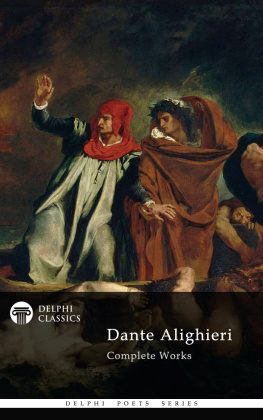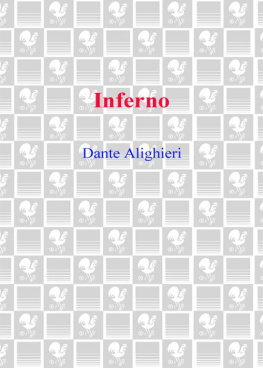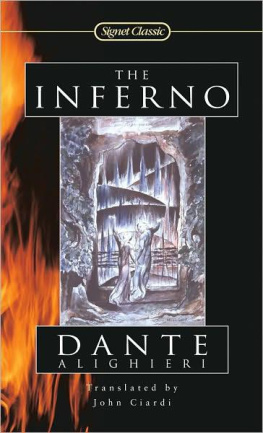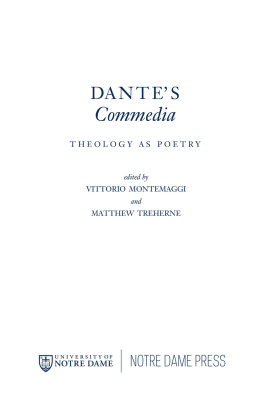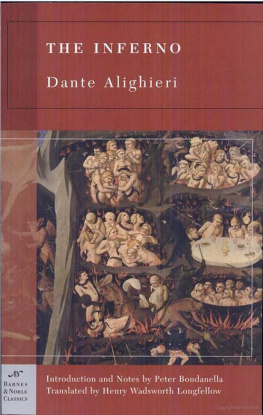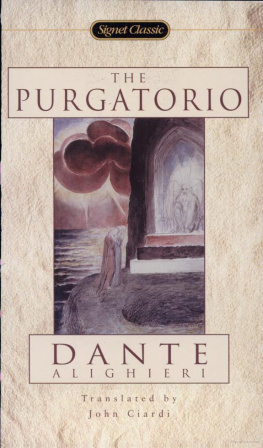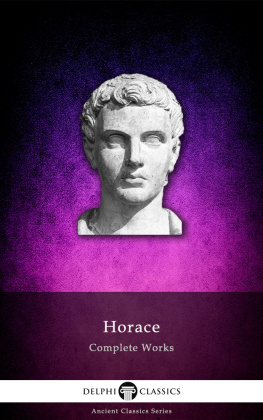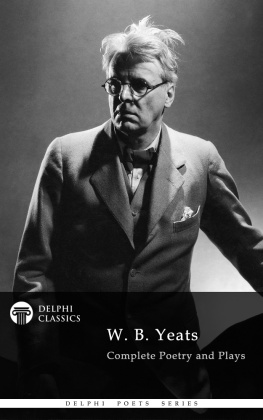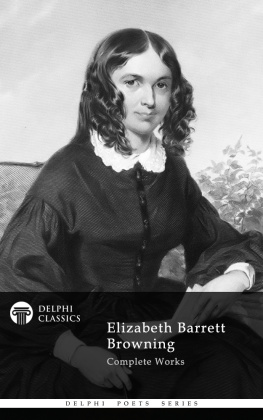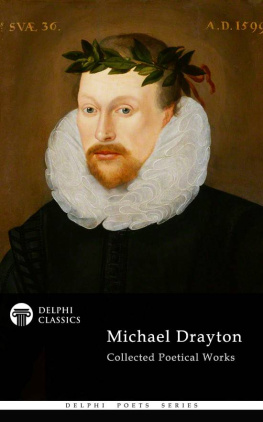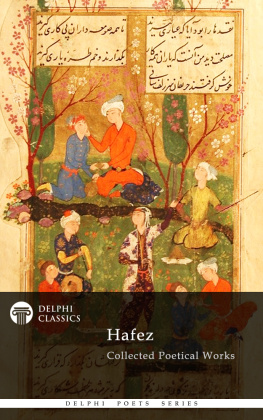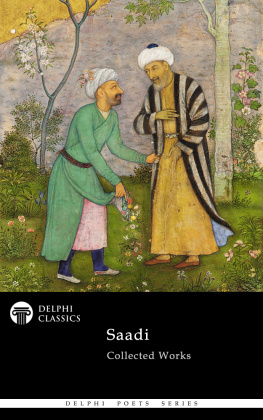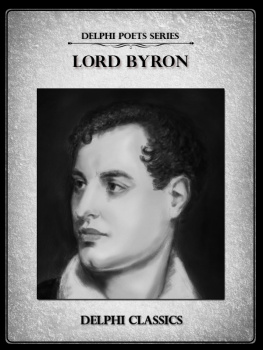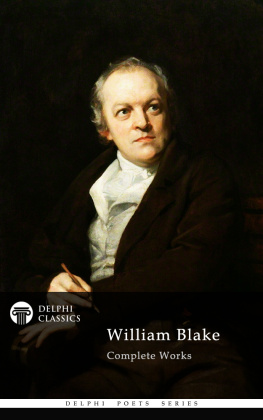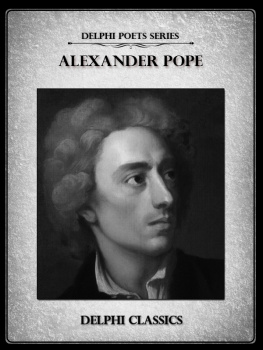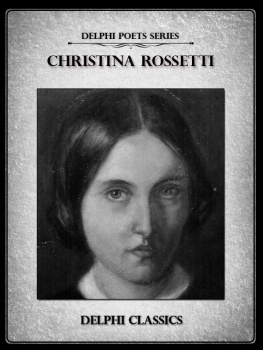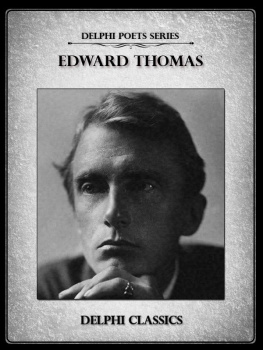

DANTE ALIGHIERI
(1265-1321)

Contents

Delphi Classics 2012
Version 1


DANTE ALIGHIERI

By Delphi Classics, 2012
NOTE

When reading poetry on an eReader, it is advisable to use a small font size, which will allow the lines of poetry to display correctly.
The Poetry Collections

Dantes birthplace, Florence

Medieval Florence by Giorgio Vasari

Florence today
THE NEW LIFE

Translated by Charles Eliot Norton
La Vita Nuova is a collection of verse and prose works written in 1295 by the Italian poet Dante Alighieri (12651321). Forming an expression of the medieval genre of courtly love, the collection was innovative for being written in Italian, instead of Latin the favoured language of high literature at the time. As well as the poets other works, La Vita Nuova helped to establish the Tuscan dialect, promoting an Italian language that could be appreciated by readers of all backgrounds and not just the privileged few.
The work contains 42 short chapters, with commentaries on 25 sonnets and several other rarer forms of poems. In the prose sections, Dante constructs a narrative of sorts between the poems; recounting his encounters with Beatrice, a young Florentine maiden he meets and falls in love with at first sight. As the poet discusses the origins and context of each poem, he also explains, often in meticulous detail, his technical decisions in composition. The chapters containing poems are composed of three parts: the semi-autobiographical narrative, the lyric that resulted from those circumstances and a brief structural outline of the lyric.
La Vita Nuova was written with the purpose to elevate courtly love poetry, transposing its tropes and its language into a sacred form of love poetry. The collection is a landmark work in the development of emotional autobiography, finely delineating feelings of courtly love, as well as presenting an unprecedented insight of a poets workmanship.

A portrait of Dante attributed to Giotto

Dante meets Beatrice at the Santa Trinita bridge, by Henry Holiday, 1883
CONTENTS

A scene from the poem by Dante Gabriel Rossetti, 1871
I.
IN that part of the book of my memory before which little can be read is found a rubric which says: Incipit Vita Nova [The New Life begins]. Under which rubric I find the words written which it is my intention to copy into this little book, and if not all of them, at least their meaning.
II.
Nine times now, since my birth, the heaven of light had turned almost to the same point in its own gyration, when the glorious Lady of my mind, who was called Beatrice by many who knew not what to call her, first appeared before my eyes. She had already been in this life so long that in its course the starry heaven had moved toward the region of the East one of the twelve parts of a degree; so that at about the beginning of her ninth year she appeared to me, and I near the end of my ninth year saw her. She appeared to me clothed in a most noble color, a modest and becoming crimson, and she was girt and adorned in such wise as befitted her very youthful age. At that instant, I say truly that the spirit of life, which dwells in the most secret chamber of the heart, began to tremble with such violence that it appeared fearfully in the least pulses, and, trembling, said these words: Ecce deus fortior me , qui veniens dominabitur mihi [Behold a god stronger than I, who coming shall rule over me].
At that instant the spirit of the soul, which dwells in the high chamber to which all the spirits of the senses carry their perceptions, began to marvel greatly, and, speaking especially to the spirit of the sight, said these words: Apparuit jam beatitudo vestra [Now has appeared your bliss].
At that instant the natural spirit, which dwells in that part where our nourishment is supplied, began to weep, and, weeping, said these words: Heu miser! quia frequenter impeditus ero deinceps [Woe is me, wretched! because often from this time forth shall I be hindered]. I say that from that time forward Love lorded it over my soul, which had been so speedily wedded to him: and he began to exercise over me such control and such lordship, through the power which my imagination gave to him, that it behoved me to do completely all his pleasure. He commanded me ofttimes that I should seek to see this youthful angel; so that I in my boyhood often went seeking her, and saw her of such noble and praiseworthy deportment, that truly of her might be said that word of the poet Homer, She seems not the daughter of mortal man, but of God. And though her image, which stayed constantly with me, gave assurance to Love to hold lordship over me, yet it was of such noble virtue that it never suffered Love to rule me without the faithful counsel of the reason in those matters in which it were useful to hear such counsel. And since to dwell upon the passions and actions of such early youth seems like telling an idle tale, I will leave them, and, passing over many things which might be drawn from the original where these lie hidden, I will come to those words which are written in my memory under larger paragraphs.
III.
When so many days had passed that nine years were exactly complete since the above-described apparition of this most gentle lady, on the last of these days it happened that this admirable lady appeared to me, clothed in purest white, between two gentle ladies who were of greater age; and, passing along a street, turned her eyes toward that place where I stood very timidly; and by her ineffable courtesy, which is to-day rewarded in the eternal world, saluted me with such virtue that it seemed to me then that I saw all the bounds of bliss. The hour when her most sweet salutation reached me was precisely the ninth of that day; and since it was the first time that her words came to my ears, I took in such sweetness, that, as it were intoxicated, I turned away from the folk; and, betaking myself to the solitude of my own chamber, I sat myself down to think of this most courteous lady.
Next page
